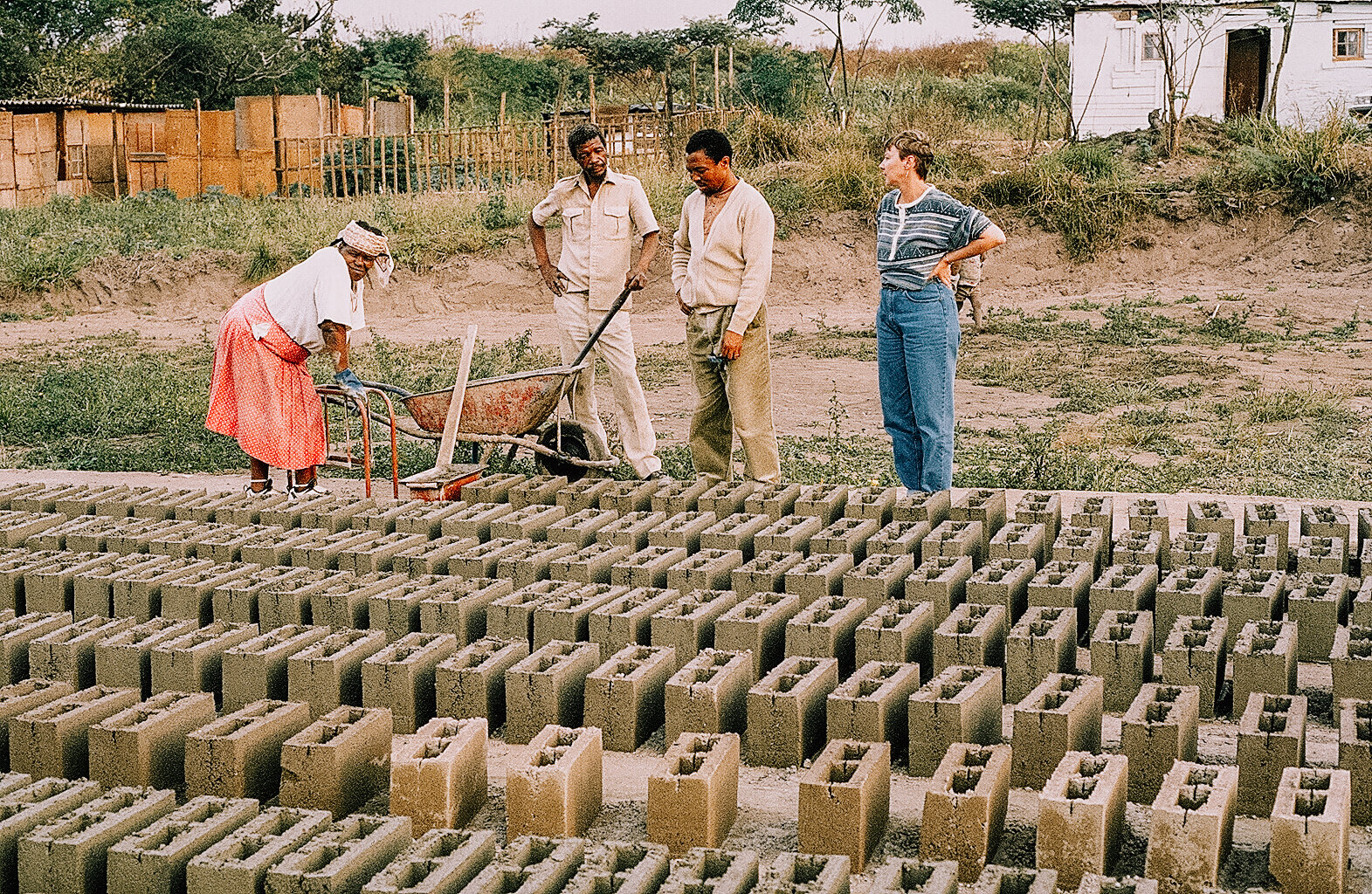
Sustainable Communities and Urban Food Security
Rooftops Canada works with Canadian and international partners to build communities that can be socially, economically, and environmentally sustainable. All our projects contribute to the global Agenda 2030 sustainable development goals to end poverty, achieve food security, promote gender equality, and make cities inclusive, safe, resilient, and sustainable.
Empowering Grassroots Groups
Families in Sub-Saharan African slums are often on the frontlines of climate change. They have little choice but to live in areas prone to environmental hazards such as landslides and floods. These areas also have very poor access to basic services like water, sanitation, drainage, or waste management. People live in dense, overcrowded, and poor-quality housing and are often evicted by ruthless landlords. In addition to these hardships, 40-50% of slum dwellers are malnourished - 4 out of 10 are children.
Building resilient and sustainable communities starts at the grassroots. Rooftops Canada and its partners empower people to organize self-help housing groups and co-ops, savings groups, women and youth groups, and/or as people living with HIV or disabilities. In turn, these groups work together in coalitions to provide mutual support, share experiences, and create sustainable local livelihoods.
Housing Related Livelihoods
From the start, Rooftops Canada and its African partners have worked together to end poverty by focussing on housing-related livelihoods. This began with supporting local production of bricks, tiles, doors, windows, and other building components. Small, local contractors, including many women, were trained and built hundreds of houses. Over the past 15 years, these pro-poor enterprises have contributed to financial deepening, especially among women and youth who have joined savings groups to access microfinance for housing.
By securing land and housing tenure, families gain the confidence they need to invest in home-based income-generating activities. Even the most basic house is seen as a family asset that can provide financial opportunity and security for future generations. In some cases, loans are provided for projects like building rental rooms, space for a small shop, or a nursery. In partnership with the Kenyan housing co-op movement, we operate revolving funds for local water enterprises and youth-led “green enterprises”.
On another scale, we have helped local agencies develop thousands of well-located medium-density social housing units in South Africa targeted to low-income families. These are providing access to socio-economic opportunities that will both alleviate poverty and promote economic growth.
Urban Food Security
For many Sub-Saharan urban households, engaging in the food system helps improve nutrition and increase family incomes. In 2010, after many years working with urban farmers in Nairobi, Rooftops Canada and its Kenyan partner, Mazingira Institute, intensified this effort through a multi-year urban agriculture exchange program in Nairobi, Cape Town, and Toronto, with a deliberate focus on women and youth.
This has led to new strategies for communities and local government to work together, and ongoing efforts to integrate urban food production, processing, and sales in both slum upgrading and new housing projects. These experiences are being shared in the region, and plans are underway for a five-year project in Nairobi to use municipal land so many more urban farmers, especially women, can feed their families and make a living. Our work on urban food security also promotes sustainability and climate adaptation through local, organic, and holistic food systems.





